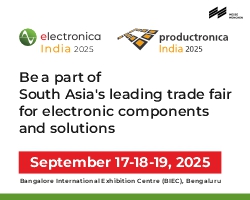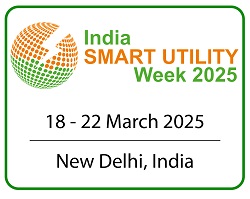- The government policies & changes required to promote Solar PV panel manufacturing domestically, and how we foresee demand for domestic solar modules in India
- Will the Government of India’s including “PV modules” in PLI plan, benefit panel manufacturing domestically?
- The role played by modern and cutting-edge technologies in developing most efficient PV panels
On the heels of Hon’able Prime Minister Shri Narendra Modi inaugurating what’s slated to be ‘World’s Largest Renewable Energy Park,’ Exhibitions India Group and Solar India expo hosted a live webinar with solar industry stakeholders deliberating the crucial topic of Solar PV Manufacturing in India.
Mr. Subrahmanyam Pulipaka, Chief Executive Officer, National Solar Energy Federation of India, opened the talk with some astute remarks, “India, especially in the wake of COVID-19 has laid an increased amount of focus on green energy initiatives. In fact, we are the only country in the G-20 to have achieved its Paris goals before the deadline. While solar energy has been a key focus area in India, solar manufacturing sector has struggled to evolve, and the government is encouraging manufacturing with initiatives including PLIs and custom duty.”
Delivering the Keynote speech, Shri Amitesh Kumar Sinha, Joint Secretary, Ministry of New and Renewable Energy, Govt. of India outlined the government’s policies to stimulate Indian solar manufacturing, “India has a large vision and requirement of solar energy, with 30GW required in production till 2030. We also however, have a large difference in demand and supply, meaning that there are large opportunities in the sector. On the policy side, we are working to provide incentives to promote solar manufacturing in the country, including lowering custom duties on solar modules and batteries. An ambitious Production-Linked Incentive Scheme worth INR 4500 Cr is in the works for high-efficiency solar PV modules, and will be allotted on highest-bidding basis.”
Dr. Rashi Gupta, Batterywali and Managing Director, Vision Mechatronics exuded optimism in terms of India’s solar outlook, “Energy storage and solar manufacturing go hand-in-hand because one literally cannot store all of the sun’s energy without storage! As we see, there are increased incentives for both solar and batteries from authorities. Both are important aspects, and we need to strengthen our self-reliance in each. Though there are bottlenecks in the manufacturing process for these two segments in India, I am certain that industry can work together to address the demand and supply gap.”
Underscoring the need for semiconductor fabrication in India, Ms. Mirunalini Chellappan, Director, Swelect Energy Systems Limited made some important observations, “If you ask the question whether India’s modules will be globally competitive in the next 2 years, the answer is no. What’s essential for India’s solar sector are upstream capacity building and semiconductor fabrication. Innovation in R&D is absolutely critical if we are to develop an ecosystem, not remain dependent on other countries, and compete on a global stage. India’s consumption of electronics (in not only the solar sector) is so high that semiconductor fabrication is an essential step in creating a world-class solar hub, as well as build investor confidence.”
Taking from his decades of experience in the industry Mr. Goutam Samanta, Head PV Technology, Juniper Green Energy made valuable remarks, “As a developer, we have to ensure that the highest quality of modules is being used. We know that it’s possible to do that in India because our workforce is talented, but what we need is discipline, adherence to timelines and quality control. While only a few suppliers in India are able to fulfil quality modules right now, I’m confident that in two years’ time, we can cater to our own demand. Of course, we need manufacturing clusters for an efficient model to ensure all raw materials’ availability in near vicinity.”
Mr. Harsh Vardhan Govil, COO, Adani Solar touched on the lack of adequate investment in India’s solar sector, “While the government is supporting the solar manufacturing sector with encouraging policies, the Indian investor is still not comfortable in coming up with expansion plans. The reason being that the technological hub in solar innovation lies with China, with the country more than capable of fulfilling the entire global solar demand. This is a rake that every investor carries, as Chinese products have lower costs, with the country offering a supporting ecosystem and upcoming technology.”
For more, please visit: http://www.exhibitionsindia.
For more, please visit: https://www.solarindiaexpo.












